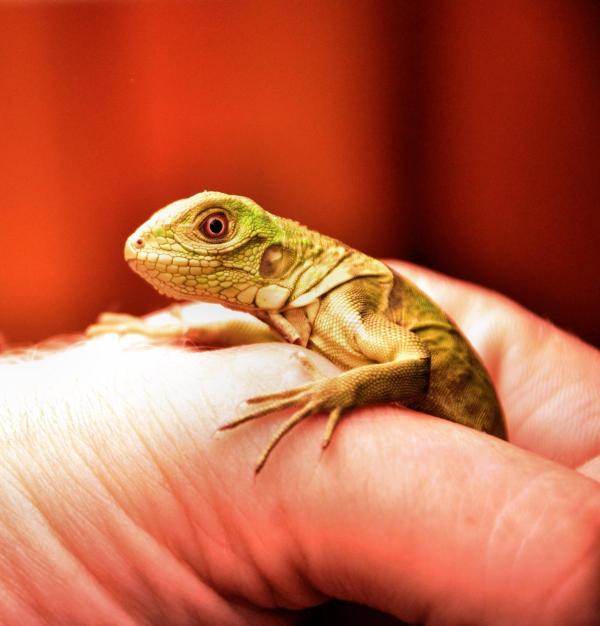
Before getting an iguana, you should know that it is not such a common pet. Iguanas are reptiles, and to care for them properly you need to invest lots of time, patience and money. Depending on where you live, finding the proper food or veterinary care may not be so easy.
As for baby iguanas, you should know that in captivity they rarely live to more than one year old. They should be looked after constantly and be given a good diet. For this reason, you must be very responsible if you decide to get a baby iguana. Stay with us at AnimalWised and find out all about feeding a baby iguana and how to do it properly.
What and how do iguanas eat?
Iguanas are animals that feed only on vegetables; they are herbivorous. You should never give your pet iguana meat. Iguanas have teeth, but they don't chew. Instead, they tear their food before swallowing it. As such, it is very important to chop up or grate their food.
You should look at the size of your iguana's head and figure out if the mouthfuls will be easy to swallow. Baby iguanas should be fed every day, and it is advisable to replenish their food bowl twice a day, changing the combination of vegetables. This will encourage your little one to eat.
The best time to feed a baby iguana is in the morning, after it has been warmed up by UV rays for a couple of hours. Iguanas need heat to be able to break down food. When you move them, especially after eating, it is important that you don't subject them to drafts or sudden changes in temperature.
Food should never be cold nor excessively hot. If you use frozen vegetables, you should thaw them beforehand and wait for them to return to room temperature. Even if it comes from the fridge, it's a good idea to prepare the bowl and wait for the temperature to rise. Try leaving it outside the terrarium for a few minutes.
It is very important that you regularly clean the iguana's bowl without leaving any leftovers from previous days, because fungi can easily appear. Here you can learn more about the diet of the green iguana.
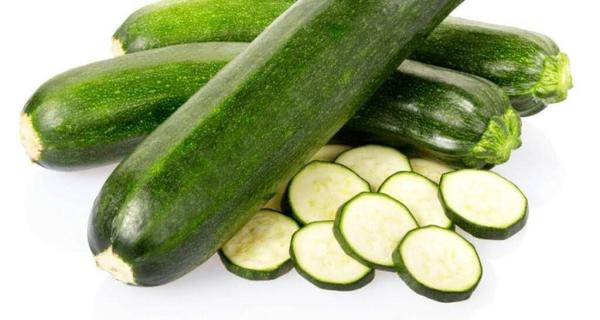
Healthy food for a baby iguana
An iguana's diet should contain about 95% vegetables of the green and leafy kind and 5% fruit and iguana feed.
Fresh alfalfa is a good base with which you can mix the fruit and vegetables, chopped up into small pieces. You can also incorporate pumpkin flowers, hibiscus or rose provided they do not contain pesticides. Recommended vegetables for iguanas include:
- Pumpkin
- Courgette
- Celery
- Coriander
- Green beans
- Turnip tops
Some fruits, such as lemons or oranges, are not recommended due to their acidity. However, they can be be given occasionally and in small amounts. Fruits that you should incorporate are:
- Figs
- Cantaloupe
- Pears
- Apples
- Tomatoes
- Papaya
You can incorporate dehydrated foods from the market into their diet, but always combined with other fresh products. If your little iguana finds it difficult to eat them, you can moisten them with water to soften them up and make them easier to ingest.

Occasional food for iguanas
These foods should only be given sporadically, as they don't have a composition suitable for iguanas and consuming high amounts of them can cause nutritional deficiencies. You can include small amounts of some of them as long as they are with other recommended vegetables.
Foods low in calcium and phosphorus:
- Carrots
- Banana
- Grapes
- Lettuce
- Onion
Lettuce, despite being a food that iguanas usually eat very well, is not advisable to give in large amounts. This is because lettuce has very little nutritional value and can make your baby iguana lose its appetite.
Foods that cause deficiencies in the thyroid gland:
- Broccoli
- Brussels sprouts
- Cauliflower
- Turnips
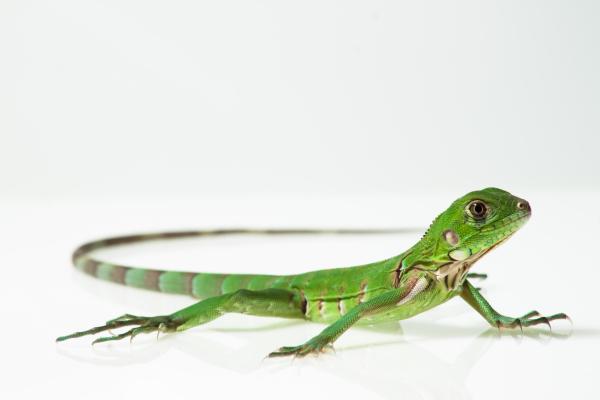
Forbidden foods for iguanas
The foods which are labelled as "forbidden" or dangerous are not poisonous for your iguana, but owing to their composition they are completely unsuitable. You must avoid them to prevent future problems in your iguana's digestion and overall health. This is especially true with baby iguanas, who require a healthy and varied diet to grow strong.
There are a number of vegetables that can be harmful to your iguana. They are those that contain oxalic acid or oxalate; a substance that an iguana's organism cannot break down and assimilate. Their presence inhibits the normal assimilation of calcium, generating deficiencies that can trigger bone and joint problems.
Foods with oxalic acid include:
- Spinach
- Rhubarb
- Beetroot
- Chard
- Pepper
You must avoid giving an iguana eggs or any dairy products, such as cheese.
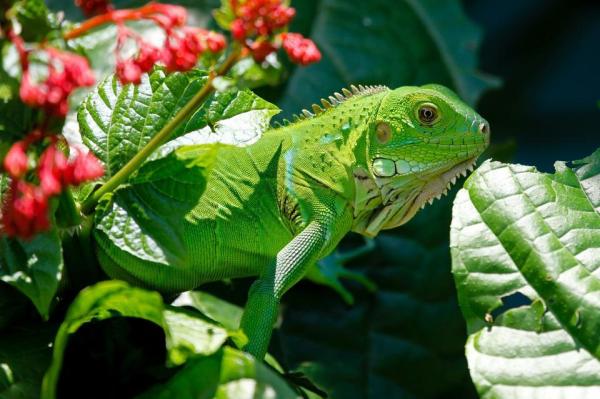
Vitamins and calcium
Vitamin D, calcium and phosphorus should be present in any iguana's diet, especially at a young age. Vitamin D and phosphorus are involved in calcium absorption, a key factor for the development of a baby iguana. If the nutritional intake is inadequate, the iguana can develop MBD, that is, metabolic bone disease.
A healthy, varied and balanced diet should provide the necessary amounts of these nutrients, but you need to make sure of it with vitamin supplements. On the market you can find pills, drops or special iguana sprays. Ask your vet about the dosis and appropriate supplement for your young iguana.
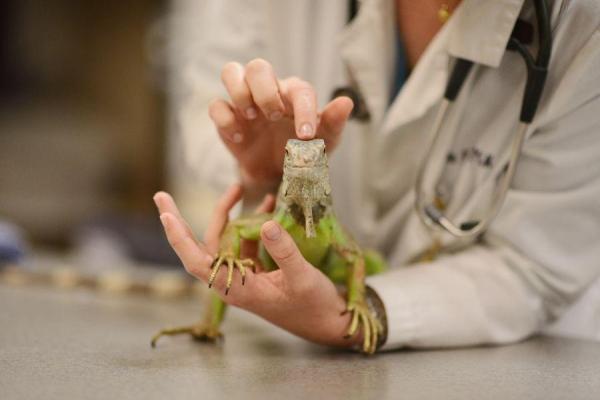
If you want to read similar articles to Feeding a Baby Iguana, we recommend you visit our Lactation category.